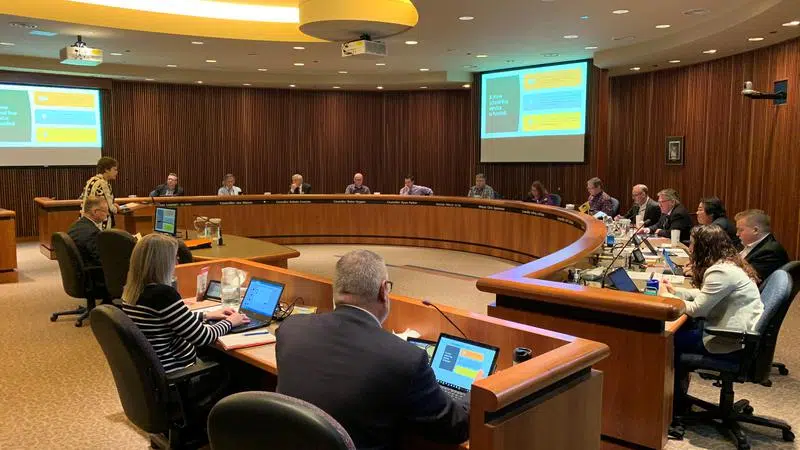
Lethbridge school boards: severing bussing partnership with city makes no sense
LETHBRIDGE, AB – The Lethbridge School Division (LSD) and Holy Spirit Catholic School Division (HSC) are pleading city council to reconsider their decision to no longer partner with the schools on bussing students as of the end of the 2019-2020 school year.
That was of one the outcomes of Phase One of the Fiscal and Operational Review Report, which looked to find efficiencies across the City of Lethbridge’s operations.
The Superintendents of both divisions say the 50-year partnership has been nothing but successful and makes fiscal sense.
As seen in the chart below, LSD and HSC received a combined $2,817,400 grant from the provincial government to cover transportation in 2018-2019, resulting in a budget surplus of $74,351.

